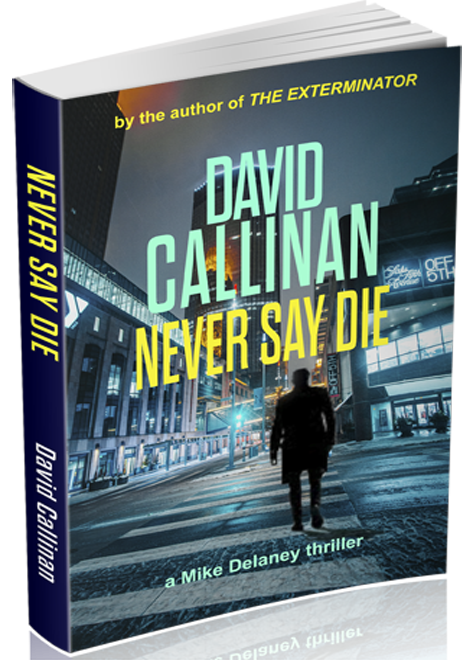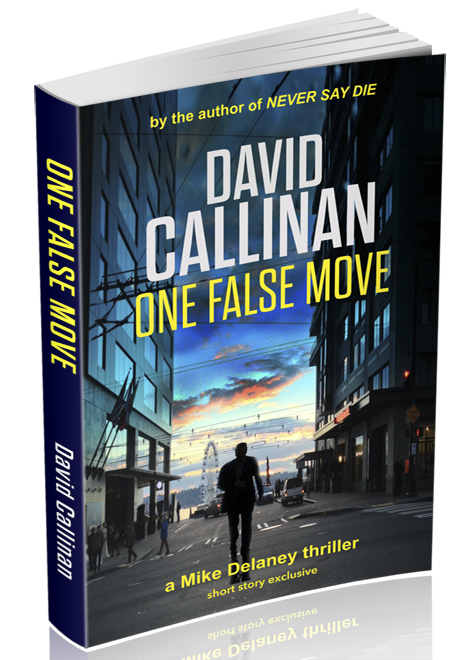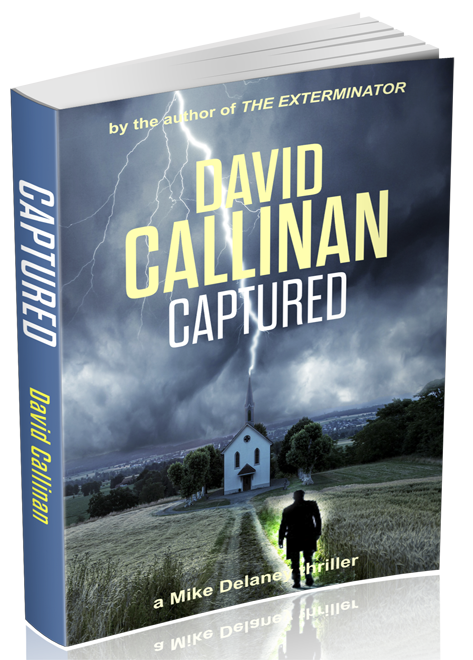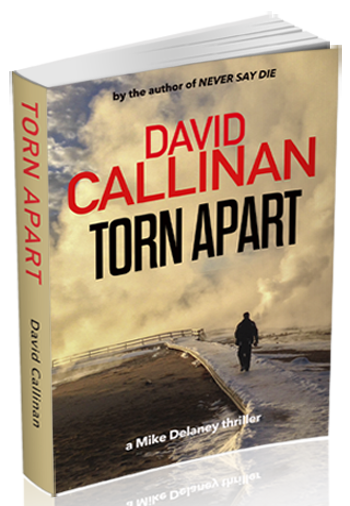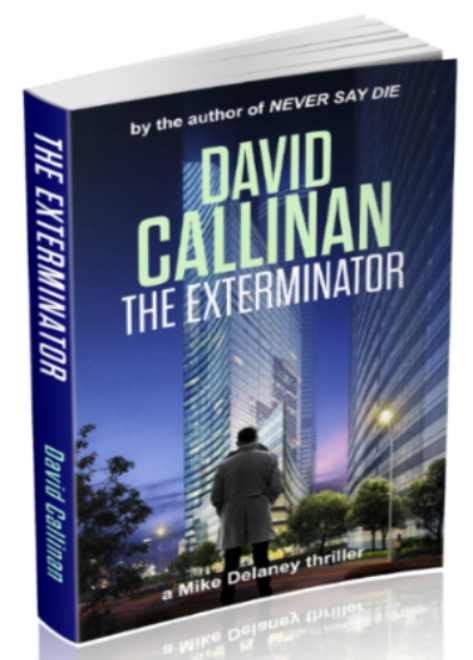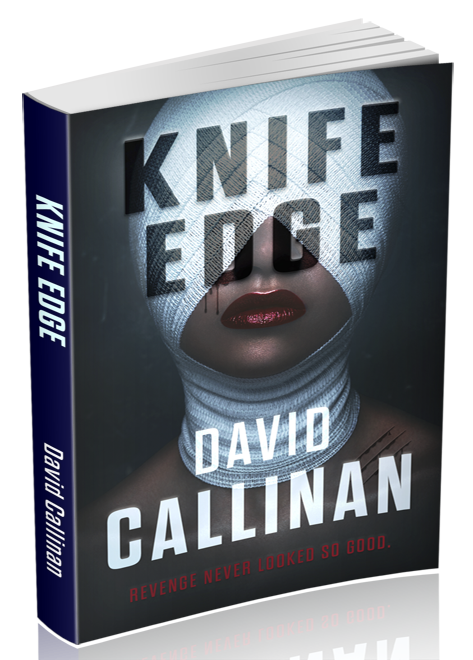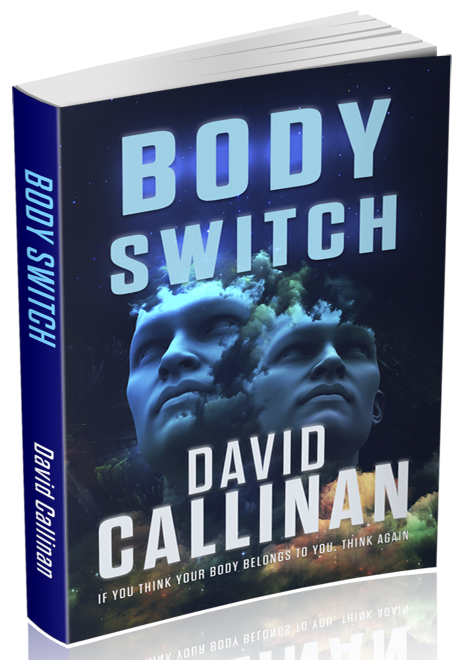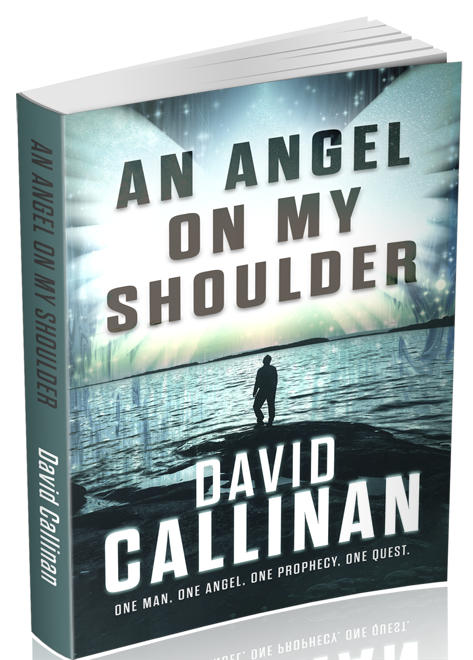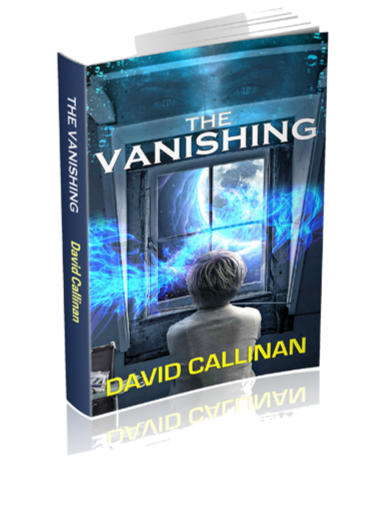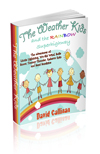Interview
PENNY EHRENKRANZ
AUTHOR: David Callinan
BOOK TITLE: THE IMMORTALITY PLOT
GENRE: Crime thriller
PUBLISHER: Ocean House (own self-published)
BUY LINK: http://www.amazon.com/The-Immortality-Plot-ebook/d...
BOOK TITLE: THE IMMORTALITY PLOT
GENRE: Crime thriller
PUBLISHER: Ocean House (own self-published)
BUY LINK: http://www.amazon.com/The-Immortality-Plot-ebook/d...
Please tell us about yourself.
I've had a varied career as a musician, journalist, PR consultant and editor. I started out after my education doing a huge variety of different jobs uncertain about career paths. I rediscovered Irish folk music and formed a folk band called The Spalpeens. We busked all over Europe and Ireland then toured with The Dubliners and many other luminaries. Later I formed a folk-rock band called Urban Clearway and toured with Elton John, Rod Stewart and Billy Connolly.
Then I co-wrote a Celtic rock opera for the Edinburgh festival called Pucka-Ri which starred a young Pierce Brosnan (see YouTube). He had to appear naked with a goat for his first entrance. I became a journalist, editor and PR consultant handling many different types of clients but was writing consistently all this time. I am a cross-genre writer: dark thrillers, young adult fantasy and children's books.
Are you a full-time writer or part-time, and how do you organize your writing time?
I suppose I am full-time, although I do take editorial assignments on occasions. I divide work between writing and promoting, which never seems to be one hundred percent successful. I have many books out in different genres with very different readerships, from Dean Koontz/Thomas Harris-type thrillers to Philip Pullman-like young adult fantasy.
I suppose I am full-time, although I do take editorial assignments on occasions. I divide work between writing and promoting, which never seems to be one hundred percent successful. I have many books out in different genres with very different readerships, from Dean Koontz/Thomas Harris-type thrillers to Philip Pullman-like young adult fantasy.
When and why did you begin writing?
I can remember writing a series of adventures featuring a character called Thomas when I was around eight or 10. I grew up reading the adventures of William (Richmal Crompton) and I just copied the approach
.
.
What inspired you to write your first book?
It's funny but I put off writing a major book for many years. I used to say to myself that I knew I would write a book one day but never imagined I would write genre fiction. I wanted to write the great working class hero novel. Then I thought trying to write TV series would be easier so I tried that unsuccessfully. The first book I ever wrote was called All The Wild Young Children, the same title as a song I had written. I just launched into it and surprise, surprise attracted the interest of publisher Secker & Warburg who saw raw talent but felt the book was unpublishable. They were right.
It's funny but I put off writing a major book for many years. I used to say to myself that I knew I would write a book one day but never imagined I would write genre fiction. I wanted to write the great working class hero novel. Then I thought trying to write TV series would be easier so I tried that unsuccessfully. The first book I ever wrote was called All The Wild Young Children, the same title as a song I had written. I just launched into it and surprise, surprise attracted the interest of publisher Secker & Warburg who saw raw talent but felt the book was unpublishable. They were right.
What are your thoughts about promotion?
I have two blogs and two Twitter accounts plus a Facebook page and loads of email/newsletter lists but nothing seems to work all that well even though the content is good. As author JA Konrath has said, you do need a hefty slice of luck. Self-publishing has opened the floodgates so it is just as hard to get noticed now as it was in the past, in fact harder. And it means that as well as good books being written there is a lot of dross. If I knew the secret of propelling myself into the mainstream consciousness of book buyers around the world I would keep it to myself.
I have two blogs and two Twitter accounts plus a Facebook page and loads of email/newsletter lists but nothing seems to work all that well even though the content is good. As author JA Konrath has said, you do need a hefty slice of luck. Self-publishing has opened the floodgates so it is just as hard to get noticed now as it was in the past, in fact harder. And it means that as well as good books being written there is a lot of dross. If I knew the secret of propelling myself into the mainstream consciousness of book buyers around the world I would keep it to myself.
Publishers will often fight shy of taking on a self-published book that hasn't sold a shed load of copies but, the truth is, few do so this is not a really accurate way of judging reader acceptance of a book and I think publishers should not take a skin deep approach to self published books.
What are your current projects?
Apart from The Immortality Plot, which features ex U.S assassin, ex Hong Kong police and ex esoteric monk, Mike Delaney, I have just finished the next book in the series featuring this character Torn Apart. I have stand alone dark metaphyiscal thrillers: Knife Edge, Bodyswitch, and An Angel On My Shoulder. In addition, I have written the first of a YS SF/fantasy trilogy The Creation Game, called The Vanishing and the first of a children's chapter book series featuring The Weather Kids.
Apart from The Immortality Plot, which features ex U.S assassin, ex Hong Kong police and ex esoteric monk, Mike Delaney, I have just finished the next book in the series featuring this character Torn Apart. I have stand alone dark metaphyiscal thrillers: Knife Edge, Bodyswitch, and An Angel On My Shoulder. In addition, I have written the first of a YS SF/fantasy trilogy The Creation Game, called The Vanishing and the first of a children's chapter book series featuring The Weather Kids.
What genre do you write in and why?
I have read widely over the years but found myself at ease as a writer with the darker side of crime thrillers. I have a strong leaning towards what you might call metaphysical or spiritual ideas (but not as you might know them). I have written many screenplays that became books. You can explore the human condition in some depth in the crime thriller format but I don't really stick to formats as such. I have toyed with the idea of writing romance fiction under a different name but I don't think my wife would be convinced by the result.
I have read widely over the years but found myself at ease as a writer with the darker side of crime thrillers. I have a strong leaning towards what you might call metaphysical or spiritual ideas (but not as you might know them). I have written many screenplays that became books. You can explore the human condition in some depth in the crime thriller format but I don't really stick to formats as such. I have toyed with the idea of writing romance fiction under a different name but I don't think my wife would be convinced by the result.
Tell us about the current book you're promoting.
The Immortality Plot - first of series featuring Mike Delaney
Mike Delaney, conflicted, spiritual, charismatic, ex-US government assassin, ex Hong Kong Police, ex-esoteric monk and full-time avenger as he seeks the killer of his murdered wife and uncovers an illicit human cloning operation for the super rich.
The antagonist, Lucius Gynt (alias Chantelle), known as 'The Priest' is a transvestite who is as tough as a male and as sensually alluring as a femme fatale who makes Hannibal Lecter look like Little Bo Peep.
Mike Delaney is kicked out of the Hong Kong Force on a trumped up charge along with his partner Bob Messenger. Delaney drops out and joins a reclusive esoteric monastic brotherhood while Messenger forms confess-confess, a global crime busting website where ordinary people fight back against injustices, each their own code name.
The antagonist, Lucius Gynt (alias Chantelle), known as 'The Priest' is a transvestite who is as tough as a male and as sensually alluring as a femme fatale who makes Hannibal Lecter look like Little Bo Peep.
Mike Delaney is kicked out of the Hong Kong Force on a trumped up charge along with his partner Bob Messenger. Delaney drops out and joins a reclusive esoteric monastic brotherhood while Messenger forms confess-confess, a global crime busting website where ordinary people fight back against injustices, each their own code name.
Delaney falls in love, leaves the monastery and marries. One year later his investigative journalist wife is brutally murdered by a contract serial killer known as 'The Priest'. She is one of many. Delaney vows to track down 'The Priest'. He discovers his wife was about to expose a global plot known as The Renaissance Project involving the richest and most powerful people on the planet who pay huge sums to attain true immortality. The 'Priest' is their tame assassin (but Lucius Gynt is not as tame as they think he is).On the confess-confess website Delaney's code name is 'The Monk'. His search for 'The Priest', and uncovering the labyrinthine Renaissance Project will test his skills to the limit and put his life on the line.
What comes first: the plot or characters?
In this case, because I constructed the character in great detail, the character came first. I then had to dream up storylines and plots to suit.
In this case, because I constructed the character in great detail, the character came first. I then had to dream up storylines and plots to suit.
Does writing violent or highly sexual scenes bother you? Why or why not?
Most of my adult fiction is a touch erotic without being dominated by sexual action. Sex in a literary sense has never bothered me although I tire of badly written, semi-literate porn that has little to do with sexual experience. In the world inhabited by Mike Delaney, violence is a fact of life. However, he is a character that has vowed to try never to kill again unless is life or the lives of his loved ones are in danger.
Most of my adult fiction is a touch erotic without being dominated by sexual action. Sex in a literary sense has never bothered me although I tire of badly written, semi-literate porn that has little to do with sexual experience. In the world inhabited by Mike Delaney, violence is a fact of life. However, he is a character that has vowed to try never to kill again unless is life or the lives of his loved ones are in danger.
How long does it take to write a book, and what is your process?
I tend to apply the same approach as I took writing a screenplay to writing a thriller. It would be different if I were to write literary fiction. I usually plot the overt and the subtle action on either side of a vertical line that I call the spine. One side details the action, the other the emotional undercurrents, implications and feelings of the characters. So I can deliberately plan a plot point by a certain page in the book, quite apart from chapter cliffhangers.
I tend to apply the same approach as I took writing a screenplay to writing a thriller. It would be different if I were to write literary fiction. I usually plot the overt and the subtle action on either side of a vertical line that I call the spine. One side details the action, the other the emotional undercurrents, implications and feelings of the characters. So I can deliberately plan a plot point by a certain page in the book, quite apart from chapter cliffhangers.
How can we find you? Website, Facebook, Twitter, blog, etc.?
Website containing blog http://www.davidcallinan.com. Separate blog called The Bookwriters http://thebookwriters.wordpress.com. On Twitter, I can be found at @davidcallinan and @thebookwriters, and you can like my Facebook page at https://www.facebook.com/pages/David-Callinan/2676...
Website containing blog http://www.davidcallinan.com. Separate blog called The Bookwriters http://thebookwriters.wordpress.com. On Twitter, I can be found at @davidcallinan and @thebookwriters, and you can like my Facebook page at https://www.facebook.com/pages/David-Callinan/2676...
////////////////////////////////////////////////////////////////////////////////////////////////////////////////////////////////////////////////////////////
NORM GOLDMAN:
Today, Norm Goldman is honored to have as our guest, David Callinan, novelist, screenwriter and musician and author of The Immortality Plot, Knife Edge, Bodyswitch and The Kingdoms Of Time And Space.
Good day, David and thanks for participating in our interview.
Norm:
You have worn many hats as screenwriter, musician and author, which have you found most rewarding and why?
David: In terms of financial rewards, probably a musician. But that was purely circumstantial. However, each has tapped into my psyche, subconscious and imagination – different routes to the same destination.
Norm:
What do you think over the years has driven you as a writer?
David: Several things, really. I always remember reading a quote from John Braine (Room At The Top) who said that \"a writer is a person who writes\". That about sums it up. Most writers need to write. In many cases the rewards are minimal unless they strike gold and living in your own thoughts and imagination can send you a little ga-ga. I suppose I also want to be a successful writer, not just for money but because I want the world to hear my voice.
Norm:
Are your novels improvisational or do you have a set plan?
David: Both in an odd way. Some have been improvised upon the bedrock of a plan. Others are based on my own screenplays and this means they have been almost written for me. The dictates of the novel mean I have to improvise and extemporize upon the screenplay. My new novel 'The Immortality Plot', part of a planned series, started from scratch. I begin by sketching out the story, building the spine and timeline, until it feels solid and real. The writing expands from there but I allow myself to improvise if the story and characters demand that I do.
Norm:
What do you want your novels to do? Amuse people? Provoke thinking?
David: Yes and yes. Having said that, I don't think my books actually amuse people. I think they might frighten a few people but I certainly believe they will make people think.
Norm:
Could you tell our readers a little about your recent novel, Knife Edge? What did you enjoy most about writing this book?
David: 'Knife Edge' began life as a screenplay and the kernel of the story is the desire for beauty at all costs. It's about desire and greed driven by a life of despair. How far would someone go to acquire the life and assets of someone else? How could space age body remodeling or plastic surgery transform two ugly losers and give them superstar looks? If they had the basic physiognomy, albeit hidden by ugly blemishes and facial disfigurement, then could they be transformed?
Ella Fallon and Ed Leeming are lovers. Both are ugly and deformed and have been tormented at college by Scott Stockton, the handsome, hedonistic and vicious heir to an industrial fortune. But then they are transformed by futuristic body remodelling techniques into stunningly beautiful people - front cover looks and talent to boot. Ed is remade into an identical double of Stockton, the man he hates.
All they want is revenge on the man who made their lives a wretched misery. Stockton inherits the family company whose latest development is the so-called 'immortality' drug, Genocel. Now there is only one game worth playing - erase Scott Stockton and steal his entire life and fortune - and then to live forever.
Norm:
Do you feel that writers, regardless of genre owe something to readers, if not, why not, if so, why and what would that be?
David: I don't think a writer writes a novel with a sense of debt to the reader in the front of his/her mind. In a sense, you have exactly the same debt to yourself as you do to any reader. You have to reveal your own vision and only by doing that can you be sure that you are giving to the reader. I suppose if you write non-fiction it is a little different.
Norm:
How long does it take you to write a typical novel, including research, writing and editing time?
David: I think 'Knife Edge' took around four months.'The Immortality Plot' is probably more germane because I have only just finished it. I started making notes in Turkey a couple of years ago. I wrote the spine and did lots of background research during the next months and in parallel to writing the book. I wrote the actual draft at home and while travelling to Europe and the US. I started writing the book (I've checked my computer file) in early July and it was finished by mid-August.
Norm:
Can you tell us how you found representation for your books? Did you pitch them to an agent, or query publishers who would most likely publish these types of book? Any rejections?
David: Over the years I've had loads of rejections. As a screenwriter I stumbled into a kind of representation with the famous Dennis Selinger at ICM London, but he unfortunately passed away. I just contacted some agents in the UK about my first novel 'Fortress Manhattan', and almost straight away found an agent. In fact, I didn't know he was even representing me until he had sold the book.
I tried to find a US agent for some time because I figured the market was much bigger for my kind of fiction than the UK and in the UK there appears to be a lot more prima-donnas in the agenting business. At that time, I had a wagon load of treatments and synopses but no actual book. It wasn't until I wrote the spiritual thriller 'Angel On My Shoulder' that I found an agent in the US.
Norm:
In the last year or so have you seen any changes in the way publishers publish and/or distribute books? Are there any emerging trends developing?
David: Fiction is being squeezed by the supermarket chains and the consolidation in bookstores. The book trade is archaic in the way it does business. Internet publishing and self-publishing are taking up the slack but not necessarily bringing in the sales. It's the old chestnut, there are too many books and, although we all love book stores and the smell and feel of real books, the main chains and distribution channels cannot deliver the breadth of writing or give new authors a chance without a major change taking place in book retailing.
Norm:
How have you used the Internet to boost your writing career?
David: Almost everything I have achieved has involved the Internet in some way or other. Websites, review sites, email marketing and publicity, have all been useful.
Norm:
What's your advice to achieve success as a writer?
David: If it's fiction then you just have to keep writing in the belief that people will want to read your material. It also pays to be self-critical and to ask yourself deep and searching questions about your work. Then, somehow, you have to trigger a response somewhere and keep promoting yourself (which is the hard bit for many writers).
Norm:
You are also a musician and song writer. How was it like touring and performing with artists as Elton John, Bert Jansch, Bill Connolly, Rod Stewart and Long John Baldry? As a follow up, do you still perform as a musician or have you given this up?
David: I perform sometimes and I am thinking of making an album. A new wave Irish singer (Sean Tyrrell) has picked up songs I wrote 30/40 years ago and recorded a bunch of them. And an album I made in 1972 is selling for big bucks on the Internet as a rare folk-psyche album (whatever that means). I was part of the scene in those days. I remember sharing a dressing room with Elton John, Dee Murray and Nigel Olssen (the first EJ band). Billy Connolly was a fan and I of him when he was with the Humblebums. I also co-wrote a Celtic rock opera for the Edinburgh Festival called 'Pucka-Ri' starring a young Pierce Brosnan. I gave him a lift back to London in my old van.
Norm:
As you are also a screenwriter, how is writing screenplays different from novel writing?
David: With a screenplay you have to be minimalist. You also know before you start that if it actually gets anywhere you will have to share it. I have to pare everything down to visual essentials in a screenplay.
Norm:
Where can our readers find out more about you?
David: On my website: http://www.davidcallinan.com or search my name on the Internet.
Norm:
Is there anything else you wish to say that we have not covered and what is next for David Callinan?
David: I'd just like to say thank you for your time. If any readers want to contact me directly they can contact me via this website.
Norm
Thanks once again and good luck with all of your future endeavors.
